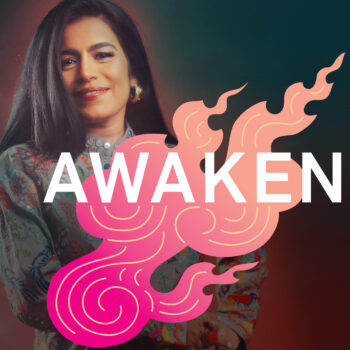
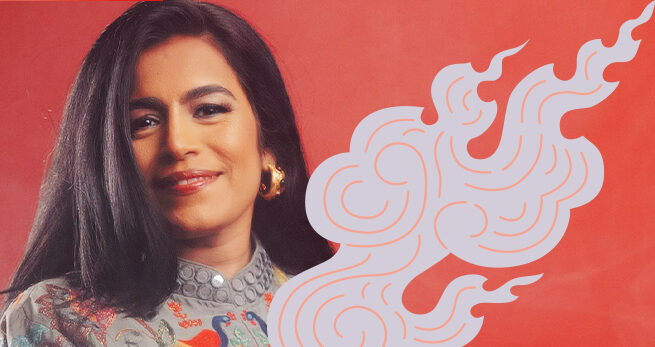
In Buddhism, morality isn’t just about avoiding harm but helping others. It comes down to taking responsibility for our actions. We can never truly know our morals until they are tested. But faced with that test, it can wake us up to new ways of thinking, being, and relating to one another in the world.
KIESE LAYMON:
During the pandemic, I was so intentional about trying to repair the friendships that like—that I was responsible for breaking.
FALU:
Writer and professor Kiese Laymon.
KIESE LAYMON:
And asking those people if I was a bad friend, or I betrayed their friendship, or like asking people, “What would reparation of this friendship look like?”
FALU:
Welcome to AWAKEN, a podcast from the Rubin Museum of Art about the dynamic path to enlightenment and what it means to “wake up.” I am singer and songwriter Falu. At the Rubin, a museum dedicated to art from the Himalayas, we believe art can nurture awakening. This season, we delve into the notion of life after—those big transitional moments throughout our lives that propel us into the unknown. We’ve gathered artists, writers, scientists, poets, Buddhist teachers, and others to explore the key events and characteristics of a human life—from birth to death and everything in between—as well as grapple with the ultimate mystery: the afterlife.
Their stories offer insights on how to approach change with openness, even amid possible grief or joy, fear or excitement. And with art from the Rubin Museum as the connecting thread, we can make even better sense of those changes. Because art has the ability to wake us up to what is possible.
In this episode, morality. Morality is a tough one to describe but in some ways, like Kiese is alluding to, it comes down to taking responsibility and how those tests of our morality, of our character, wakes up to new ways of thinking, being, and relating to one another in the world. It’s also complex because morality is subjective. There’s an aspect of morality that can feel judgmental, like a moral code or standard dictated by others that doesn’t necessarily resonate with you and your view of how the world should be. Artist and podcast host of Ear Hustle, Nigel Poor, reflects on what comes up for her when she hears the word moral…
NIGEL POOR:
A straight line. Judgment. Harshness. An inability to be flexible. Living with assumptions that you don’t question. I think about closed spaces, dark colors, dried-out stuff, husks of things.
FALU:
But when looked at it from a different angle, she said:
NIGEL POOR:
I see a compass that’s on a boat where it’s always moving, because direction is changing, and that gives you a fluidity and the ability to dig into your assumptions and go in different directions. Yeah, so they seem like completely different. One is light and full of air, and one is runnin out of time, cause it’s not growing.
FALU:
Kiese looking more closely at how he would like to show up in his relationships feels more akin to a moral compass, one that, according to Nigel, has fluidity and a chance to evolve. Morality evolves over time and can change from culture to culture, circumstance to circumstance. But there is one thing that underlies it all, not doing harm. Highly respected Tibetan Buddhist meditation teacher and author Yongey Mingyor Rinpoche.
YONGEY MINGYOR RINPOCHE:
From Buddhist perspective, morality is what we call the mind of virtue, or the mind of—the connectivity or inner quality.
So the innate quality, we have love and compassion, awareness, and wisdom. So Buddha talk about three different levels of morality. First, the common one is non-violence. So, with that love and compassion, to bring in action, don’t harm to others. Peace. Promote the peaceful non-violence. The first one.
FALU:
Which brings us to Kiese’s story that we started to hear at the top of this episode. In his book, Heavy, he candidly speaks about his complex upbringing and the challenging relationship between him and his Mom, amongst other things. For Kiese, one of the takeaways of writing Heavy is thinking through what doing harm looks like, whether being honest is doing harm and understanding where doing harm may come from.
KIESE LAYMON:
If, for example, you really hurt someone or made a period in their life harder than it should have been, and that person be like, “You know”—could say, like—“I really want to talk to you, because like I don’t think you did anything to fuck up our friendship,” but I know I did, and so the harder question for me is often when people are like—and this has only happened to me once in my life—where somebody’s like, you know, “What can I do to repair the harm that I did in your life?” You know? And you know, I think sometimes kids long for that question from their parents.
FALU:
And Kiese certainly longed for that from his Mom, so although the path to getting there may have been hard, even hurtful, the intention, the love, was very much a driving force.
YONGEY MINGYOR RINPOCHE:
So, all this moral—the practice depend on your motivation. So first, important we need to bring love and compassion motivation.
Then we use our wisdom to judge, try our best, based on awareness, based on seeing things, whatever we can see. And if this connected with the love and compassion, and we make decision, it become moral ethic, like moral action, become like that.
FALU:
This is how it all played out when Kiese sent his Mom Heavy before it was published.
KIESE LAYMON:
I sent the final copy, well, what felt like the final copy. I sent it to her over emailI and when I lived in Oxford, I lived in like—like housing that was owned by the University of Mississippi, so I was in this big old—big old house, in this old leather recliner. And, yeah, the basketball game was on. It was on mute. And I sent it. And then I was just like, you know, “We gonna see.” But I had been talkin to her about it the whole time, and you know, reading passages and stuff. And then I sent her a message. I said, “Mom, I sent you the book, in its whole. I want you to tell me what you think when you’re ready.”
And then I kind of just prepared myself, for like any, you know, reactions. Mostly I just thought she was going to be like, “You can’t publish this.” Like, “You can’t put that out in the world.” And that’s pretty—I mean, she did say that, but more than anything, she was just hurt. And she was just like, “You’re gonna—” Like, “It’s hard to read that.” Like, “It hurt me to read that.”
FALU:
Artist and podcast host of Ear Hustle, Nigel Poor.
NIGEL POOR:
If I’m angry at somebody, or I feel like someone has treated me badly, I think about the repercussions of how I treat them. Is it okay to be nasty back?
FALU:
Again, intentionality here is key. Kiese didn’t want to be nasty. He wanted to open a dialogue and he did. His Mom wrote him a letter.
KIESE LAYMON:
That letter is like—it’s a really heartfelt, “I know you say this happened. I don’t—I’m not going to say that what you felt didn’t happen, but I am gonna say that I didn’t intend to do it. But because you felt it, I’m sorry.” That’s one of those letters, you know what I’m sayin? And I think because we so rarely get an apology from people who really hurt us or harm us, she’s not, my mom’s not gone publicly, I think that it would take to publicly write an apology, my mother could never do in public. And most people can’t.
FALU:
Because we all make mistakes, we all mess up, we all make decisions that maybe looking back we would do differently but when we take responsibility for those, we are checking in with that moral compass and adjusting. And I actually believe that it’s in those moments that relationships can really deepen, the moments where someone comes to you and bravely shares that something you did hurt them, and then you, as a friend, or a parent as the case may be, are given the opportunity for repair.
YONGEY MINGYOR RINPOCHE:
Of course sometimes we make mistakes, and we sometimes confused. Nobody’s perfect. But we learn from our mistakes. We learn from obstacles. We learn from problems. So that is keeps the moral continuum develop.
FALU:
Meditation teacher and author Spring Washam had a good intention when she stole a gold necklace, a mistake she fully acknowledges.
SPRING WASHAM:
When I was 13, I definitely got caught shoplifting. And now that I think about it, it was on Valentine’s Day. And I was really inspired to get something for my boyfriend, at the time. We had been talking about Valentine’s Day, and then I had no money of course. And so I wanted to get him a gold necklace. And I had a friend that was kind of an expert at shoplifting, and really talked me into it.
It wasn’t a hard sell, but still, I hadn’t thought of it, like, “Oh, I could go in and just grab something.”
KAY TYE:
There’s two ways to make bad choices, quote unquote, you know, with the legal system.
FALU:
Neuroscientist Dr. Kay Tye.
KAY TYE:
You either have a different sort of value system that’s governing your decision-making process. Or, you made an impulsive decision that you regret. Those are kind of the two ways. Either, “I did a crime that I felt justified in whatever value system that I have.” Or the impulse. And those two things are very different. So, following a different value system is very different than having an impulsive behavioral action that is regrettable, and that you yourself feel is an error.
SPRING WASHAM:
Then I got in trouble and had to go to the juvenile—through a juvenile court process. Because they really pressed charges. They were, you know, again, I had an attitude, though, I have to admit, back then. But I ended up doing community service at Glide Church, and I remember my mother thinking that was going to be this terrible punishment. You know, I would have to clean the kitchen, and work on every Saturday. It was like eight weeks I had to do all this community work. But it ended up being such a powerful experience. I loved it. I absolutely loved it.
FALU:
In Buddhism, one of the five moral precepts is avoid stealing or taking what is not yours. When you do so, you are harming others. Buddhist teacher Yongey Mingyor Rinpoche says morality is…
YONGEY MINGYOR RINPOCHE:
Not just don’t harm to others, try your best to help everyone.
FALU:
And the community service gave Spring a chance to do just that.
SPRING WASHAM:
I remember at the end of my service there, I was crying. I didn’t want to leave. I thought it was—you know, it touched me deeply, the service, and the compassion, and serving people in the kitchen, and doing this meal offering.
FALU:
She was transformed.
YONGEY MINGYOR RINPOCHE:
Third, the most important is transform yourself. Transform your mind. So if you transform yourself, then you help others, then become big impact. So these three is the essence of the moral.
SPRING WASHAM:
I felt like as I was serving people a meal, and these were people in line, most of them homeless, and I was just so touched, because I felt this tremendous love. And I didn’t really understand it. I was like, “How can you love people you don’t know?” I remember having that thought. And it was just like, “I want them to be happy, and I feel sad that they’re in this line,” So I do feel like that was a doorway in some part of my consciousness and in my heart, that I really care about people who are suffering. And I felt my heart so deeply. So I think it was just deep seeds were planted, at that age, and then later I saw where that would grow in me, this compassion and this desire to alleviate pain.
FALU:
So that “a-moral” decision led to something profoundly moral. And morals aren’t necessarily something we’re born with, we learn what’s right and what’s wrong. It’s part of the process of growing up. Neuroscientist Dr. Kay Tye.
KAY TYE:
To even be able to, you know, form relationships with other individuals, and be part of social groups, I think you do need some basic models for others. When you’ve had some information about how dynamics—of how group dynamics unfold, then the necessity for morality can really come into place, where there’s just a certain code of conduct, and it helps us to all know our place, when it’s otherwise—you know, it’s just an overwhelming parameter space of, “What am I supposed to be doing?” How do we all know our parts here? And I think any sort of system—it can be morality, it can be a legal system, it can be whatever assigned roles— there’s going to be this tension between the order that it brings and also like the lack of autonomy that it imposes.
I think the reason ethics and morals exist is to simplify, so that it’s not random chance what every other animal is going to do, and you can better make predictions about what an animal is going to do, based on past interactions. I think that’s super important.
We need to know which—which individuals in the group can we predict their behaviors? And if your behavior is really unpredictable to others, it’s like difficult to interact with you.
So these are things that kind of have evolved out of necessity and efficiency.
FALU:
But what happens when you’re placed into an environment that is less familiar to you, where the dynamics are different than what you normally engage with. In those situations, you’re given a chance to question.
NIGEL POOR:
Unfortunately people forget that you can’t really know what your morals are until they’re tested. And so, a lot of people think they know what they would do, but how do you know unless you’re in a situation that calls into deep investigation of what you think is right and wrong.
FALU:
And this is precisely what happened with Nigel Poor when she first started teaching in San Quentin, a prison in California.
NIGEL POOR:
The first day in class, this guy walked in. He was a big, burly guy, and he had on sunglasses. He sat in the back of the class, and he seemed pretty—angry? And I was kind of scared of him. Then, once we started talking about photography, a couple weeks later he really—he changed, and all of a sudden I saw him in a very different way, because of the way he communicated about photography. And he became one of my best students. And later he told me he was really in a lot of pain that first class, that he had had some surgery and he wasn’t getting pain meds. And so what I read—because I was in a prison, I read as like this angry guy who doesn’t want to be here was really someone reacting to pain. And, we’re still friends. He has gotten out of prison. He is one of my favorite writers about photography.
YONGEY MINGYOR RINPOCHE:
Maybe first important is, try to understand. Maybe that person having emergency. Who knows? Maybe that person doesn’t see you. Maybe that person really mean, maybe try to do that. So many different factors, so many cause conditions. So we have to bring awareness. And maybe we can talk to that person, to have—maybe to understand what that person is coming from.
So when we bring more awareness into that, and connect with the loving kindness, compassion, to learn, to grow—wisdom—a lot of problems are solved.
NIGEL POOR:
When I think about morals shifting, I think about opening up your idea of what somebody does.
And I don’t know if this is a negative trait I have—I’m not sure, because I wonder if my morals are too fluid—I can be—I can listen and consider almost anything that people say, and then I can start to see them as—as a human being that’s got—that has had experiences that are good and bad, and they’re scared, they are powerful; I mean, they’re all different things together. So I guess what I’m saying is I can see almost anyone’s point of view.
I could have compassion for them, and I could think about how they could be in the world, and how they could have the possibility of change. And I do think that has something to do with morals that kind of like shimmer out into the world and don’t have deeply defined edges.
I guess maybe I like understanding other people’s perspectives. I really do. And I think that’s how we grow, and that’s how we figure out what works for us and what doesn’t.
But people change. I mean I do—I can think of a few people that were having a hard time in prison, and when they were listened to, it made a huge difference. I think listening to people and really caring about what they have to say is an act of love. And when someone listens to you with their full attention, with their body and their eyes and their thoughts, it’s a kind of restoration that can happen, for the person you’re talking to, and for the relationship that you’re building. And I think that’s a—caring about other people’s stories, I think, is a kind of morality more people should have.
YONGEY MINGYOR RINPOCHE:
What we call—our love and compassion also need to connected with the wisdom. Only love and compassion cannot save the world. We need to bring together with the wisdom and awareness, to—these three things together.
So of course, when we practice this in the reality, what we call four activities—peaceful non-violence, enhancement, enrichment—something develop—and magnetizing, meaning like role model, source of inspirational, heart-to-heart connection.
FALU:
In this season of Awaken, we invite one of our guests to reflect on an artwork from the Rubin Museum’s collection. For morality, Nigel Poor looked at a painting of Shakyamuni Buddha that depicts stories of the Buddha in his previous lives. On his path to enlightenment, the Buddha lived many lives, learning from each one and gaining merit from virtuous acts. We only have this one life, and we will inevitably slip up,
but if we can keep learning from our mistakes there is opportunity to become better versions of ourselves. Here, Nigel offers her perspective on this painting.
NIGEL POOR:
So, when I look at this, what I see are all these little homes, and I imagine in each home, there’s a different conversation happening, or some kind of lesson. And although it looks like similar places, I just think each one is a little universe. And some are above ground, and some are below ground. And what you—no, I was going to say what unites them is that there’s a figure, a center figure in each home, that I think is sharing a lesson. So, I think this is like seeing inside somebody’s mind, and inside the mind, the interior mind, there’s a possibility of many things happening. And so for me, this is a picture about change, and growth, and possibility, and knowing, and unknowing at the same time.
But I also see a lot of doors. So to me, a door is always about change. So I think this is an image about growth and change. That’s what I see.
And so, I have—you know how people always ask you, “If you could have a superpower, what it would be?” What I want is a key that can open any door. And I imagine when I am in a city, I can open up any door and go in and see what’s happening inside this building. And so, this painting makes me think about it, because there’s no closed-off spaces. It’s like every building has a transparent wall, and so it’s like I have that key now, and I can walk into any of these spaces, and see what’s happening.
FALU:
Nigel sees the opportunity for transformation in the painting. It comes back to what she was saying at the beginning of this episode, that morality can be a compass and it changes based on the direction you’re standing in. Of course, there are those who impose their ideas of morality onto others and it ends up causing harm. But allowing our morals to evolve might just make room for more openness, and perhaps even understanding, empathy, and kindness. Writer and editor Haley Nahman, who we heard from in previous episodes, had this reflection on morality.
HALEY NAHMAN:
How we choose to live does have lasting impacts, and I think almost of that as the afterlife. And that’s why I think it’s useful to remember that we die, but like our decisions and how we chose to live, lives on.
FALU:
The manifestation of our morals are always in evolution, based on our environment, our experience, and just where we are in life. But if we consistently go back to the basics that Yongey Mingyor Rinpoche points out—be aware, don’t do harm, help others and bring your love to it all, then we should be good to go. Things come up, we make mistakes, we fall and then we get back up again.
It’s not about not making mistakes, not making wrong choices, because we all make mistakes, but how we react to those is what sets the foundation for our moral code and constructs. And what may have initially seemed like a bad choice—stealing, hurting someone’s feelings, judging wrongfully—can actually lead to a much more profound insight: growth and kindness. There can be opportunities for repair and re-orientation.
You just heard the voices of Kiese Laymon, Haley Nahman, Nigel Poor, Yongey Mingyur Rinpoche, Dr. Kay Tye, Spring Washam, and me, Falu. To see the artwork discussed in this episode, go to rubinmuseum.org/awakenpod.
You can continue the conversation by following us on Instagram @rubinmuseum. And if you’re enjoying the podcast, leave us a review wherever you listen to podcasts, and tell your friends.
AWAKEN Season 3 is an eight-part series from the Rubin Museum. Come visit us in New York City, or explore rubinmuseum.org to learn more about the Museum and about art, cultures, and ideas from the Himalayan region.
AWAKEN is produced by the Rubin Museum of Art with Jamie Lawyer, Sarah Zabrodski, Christina Watson, Gracie Marotta, and Tenzin Gelek in collaboration with SOUND MADE PUBLIC including Tania Ketenjian, Sarah Conlisk, Philip Wood, Alessandro Santoro, and Jeremiah Moore.
Original music has been produced by Hannis Brown with additional music from Blue Dot Sessions.
AWAKEN Season 3 and the exhibition Death Is Not the End are supported by the E. Rhodes and Leona B. Carpenter Foundation, Ellen Bayard Weedon Foundation, Robert Lehman Foundation, and The Prospect Hill Foundation. The Rubin Museum’s programs are made possible by the New York State Council on the Arts with the support of the Office of Governor Kathy Hochul and the New York State Legislature. Death Is Not the End is supported in part by the National Endowment for the Arts.
Thank you for listening.
AWAKEN Season 3 is hosted by singer and songwriter Falu. Guests featured in this episode include writer and professor Kiese Laymon, writer and editor Haley Nahman, artist and podcaster Nigel Poor, Tibetan Buddhist meditation teacher and author Yongey Mingyur Rinpoche, neuroscientist Dr. Kay Tye, and meditation teacher and author Spring Washam. Read more about these guests below.
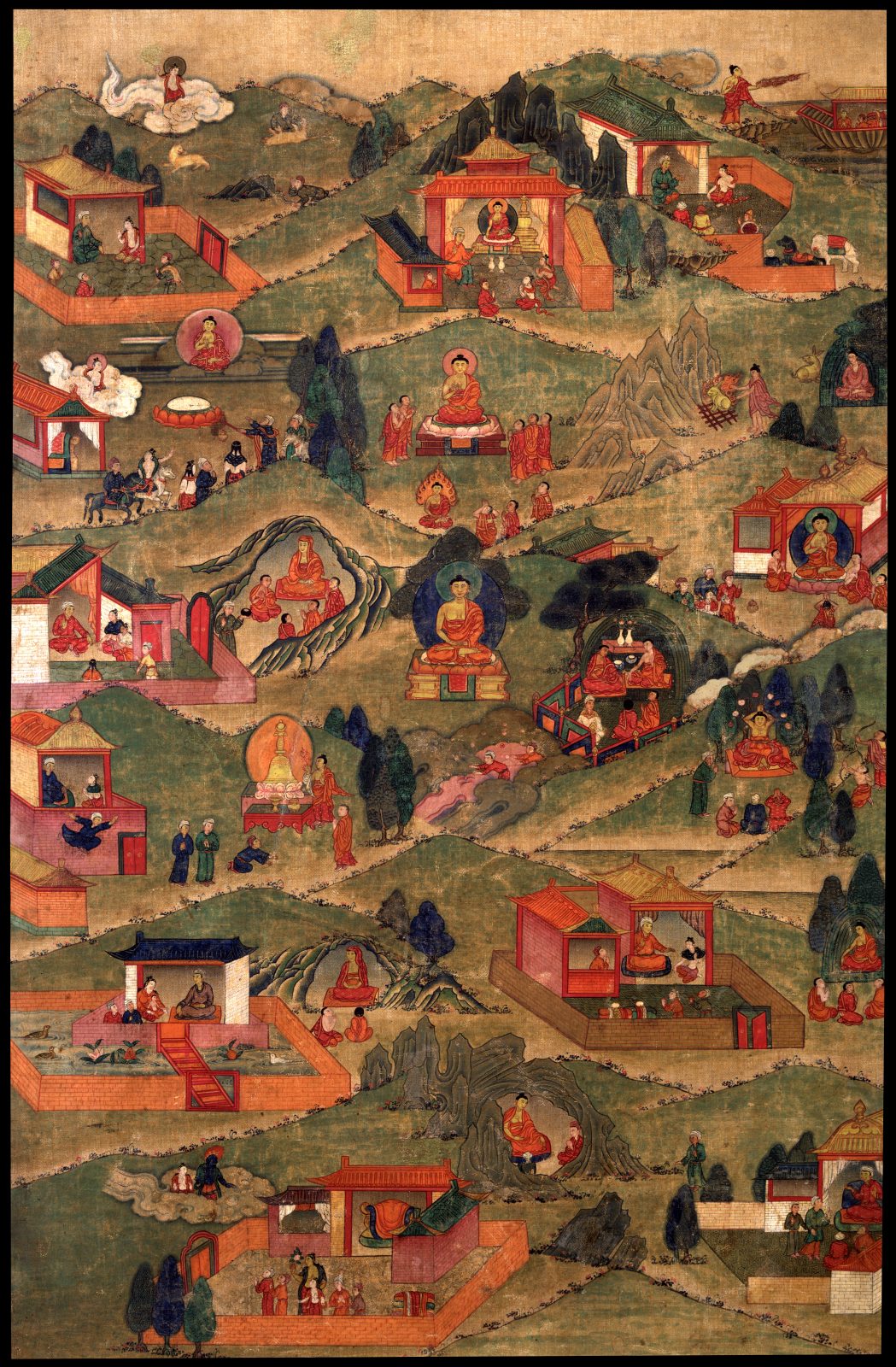
Previous Lives of the Buddha; Kham Region, Eastern Tibet; 19th century; Pigments on cloth; Rubin Museum of Himalayan Art, Gift of Shelley and Donald Rubin; C2006.66.488
Buddha Shakyamuni is an epithet for Siddhartha Gautama, the founder of the Buddhist religion. While the exact dates of Siddhartha’s life are debated, scholars generally place him in the sixth to fifth century BCE. According to early Buddhist narratives, Siddhartha was born a prince of the Shakya clan in what is now northern India and southern Nepal. Choosing to leave his palace and family for a life as a religious ascetic, Siddhartha achieved enlightenment while meditating under the bodhi tree. Siddhartha spent the rest of his life as a wandering teacher, gathering disciples to form the early Buddhist monastic community (sangha). Buddha Shakyamuni is revered all over the Buddhist world today.Learn more.

Falu is a Grammy award-winning, internationally recognized vocalist, composer, and educator known for her ability to seamlessly blend a signature modern inventive style with a formidable Indian classically shaped vocal talent. Falu’s career in the United States has led to a series of collaborations with Yo-Yo Ma, Wyclef Jean, Philip Glass, Ricky Martin, Blues Traveler, and A. R. Rahman, among others. She was appointed Carnegie Hall’s ambassador of Indian Music in 2006, and her shows at Zankel Hall have consistently sold out. Falu’s highlight performances include the 2022 GRAMMY Awards Premiere Ceremony and former President Obama and First Lady Michelle Obama’s White House State Dinner. During Diwali in 2022, the Mayor of New York City Eric Adams awarded her a citation for successfully representing immigrants in the city. Later that year she received a proclamation by the NYC Council “for fostering greater harmony around the world.”
Described by the New York Times as “East and West, ancient and modern” and named one of the twenty most influential global Indian women by the Economic Times, Falu continues to record and perform globally, and she serves as the Board of Governor for the Recording Academy’s New York Chapter.
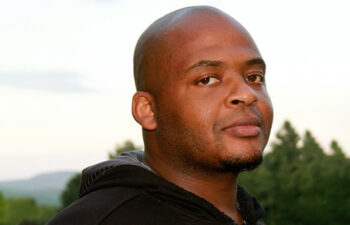
Born and raised in Jackson, Mississippi, Kiese Laymon is the Ottilie Schillig Professor in English and Creative Writing at the University of Mississippi and author of the novel Long Division, the memoir Heavy, and the essay collection How to Slowly Kill Yourself and Others in America. He was recently named a 2022 MacArthur Fellow.

Haley Nahman is a Brooklyn-based writer and editor covering modern life and culture. She is especially interested in self-delusion, cognitive bias, mass media, and how our lives are shaped by all three. Nahman writes most regularly for her weekly newsletter, Maybe Baby, which was written up in the New Yorker, and her work has appeared in New York Magazine, The Guardian, and the New York Times.
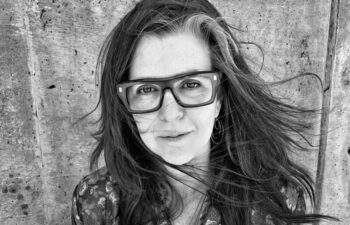
Nigel Poor is a visual artist whose work explores the various ways people make a mark and leave behind evidence of their existence. Her work has been exhibited nationally and internationally and can be found in various museum collections including SFMOMA, de Young Museum, and Corcoran Gallery of Art. She is also a professor of photography at California State University, Sacramento. In 2011 Poor got involved with San Quentin State Prison as a volunteer teacher for Mount Tamalpais College (formerly the Prison University Project). She is the co-creator and co-host of the Pulitzer Prize–nominated prison-based podcast Ear Hustle and the co-author of This Is Ear Hustle: Unflinching Stories of Everyday Prison Life.
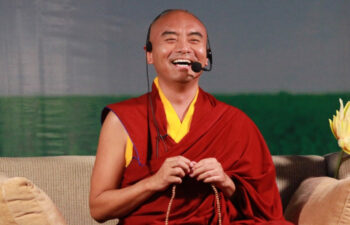
Yongey Mingyur Rinpoche is a recognized tulku of the Kagyu and Nyingma lineages of Tibetan Buddhism, a teacher, spiritual leader, and bestselling author. He possesses the rare ability to present the ancient wisdom of Tibet in a fresh, engaging manner. His profound yet accessible teachings and playful sense of humor have endeared him to students around the world. Rinpoche’s teachings weave together his own personal experiences with modern scientific research in relation to the practice of meditation. He has authored several books including two bestsellers: The Joy of Living: Unlocking the Secret and Science of Happiness, which has been translated into over 20 languages, and In Love with the World: A Monk’s Journey Through the Bardos of Living and Dying. His recent TED Talk is titled “How to Tap into Your Awareness—and Why Meditation Is Easier Than You Think.” Rinpoche teaches extensively around the world and oversees dharma centers, including three monasteries in Nepal, India, and Tibet, and the Tergar Institute in Kathmandu; Tergar meditation communities on six continents; numerous schools in Nepal; and social engagement projects related to health, hunger, hygiene, the environment, and women’s empowerment issues in the Himalayas.
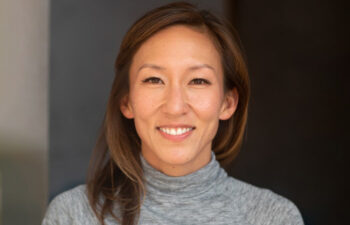
Dr. Kay Tye earned her bachelors from MIT, majoring in brain and cognitive sciences, and her PhD for thesis work with Patricia Janak at the University of California San Francisco, focusing on how the amygdala undergoes plasticity for reward learning. She did her postdoctoral training with Karl Deisseroth at Stanford University, where she pioneered the use of projection-specific optogenetic manipulations, a mainstay of circuit neuroscience, and used this approach to dissect anxiety circuits in the amygdala. She started her own lab at MIT in 2012, investigating the neural circuit mechanisms of emotional valence. In 2017 she won the NIH Director’s Pioneer Award to study social homeostasis, a conceptual framework she formalized in 2019. Dr. Tye moved her lab to the Salk Institute in 2019 and became Wylie Chair Professor of the Systems Neurobiology Laboratory. In 2021 she became a Howard Hughs Medical Investigator and continues to investigate the neural bases of emotional valence and social homeostasis on the circuit and systems level.
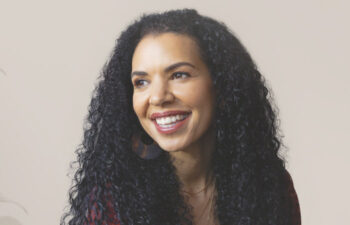
Spring Washam is a meditation teacher, author, and visionary leader based in Oakland. She is the author of A Fierce Heart: Finding Strength, Courage and Wisdom in Any Moment and her newest book, The Spirit of Harriet Tubman Awakening from the Underground. Washam is considered a pioneer in bringing mindfulness-based healing practices to diverse communities. She is one of the founding teachers at the East Bay Meditation Center. Washam received extensive training by Jack Kornfield, is a member of the teacher’s council at Spirit Rock Meditation Center in northern California, and has practiced and studied Buddhist philosophy in both the Theravada and Tibetan schools of Buddhism since 1999. In addition to being a teacher, she is a shamanic practitioner and has studied indigenous healing practices since 2008. She is the founder of Lotus Vine Journeys, an organization that blends indigenous healing practices with Buddhist wisdom in South America. Her writing and teachings have appeared in many online journals and publications such as Lion’s Roar, Tricycle, and Beliefnet. Washam has been a guest on many popular podcasts and radio shows. She currently travels and teaches meditation retreats, workshops and classes worldwide.
Get the latest news and stories from the Rubin, plus occasional information on how to support our work.